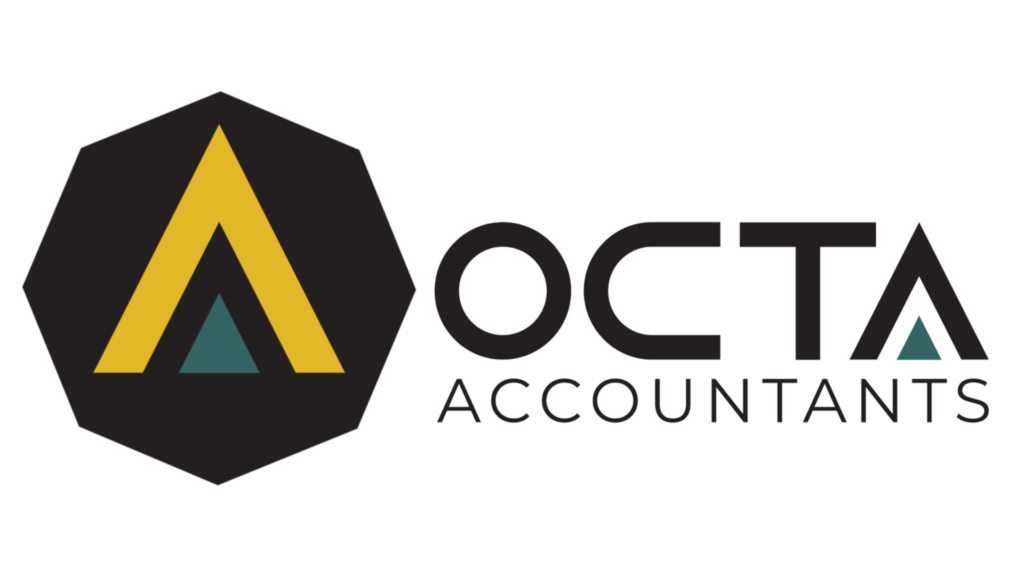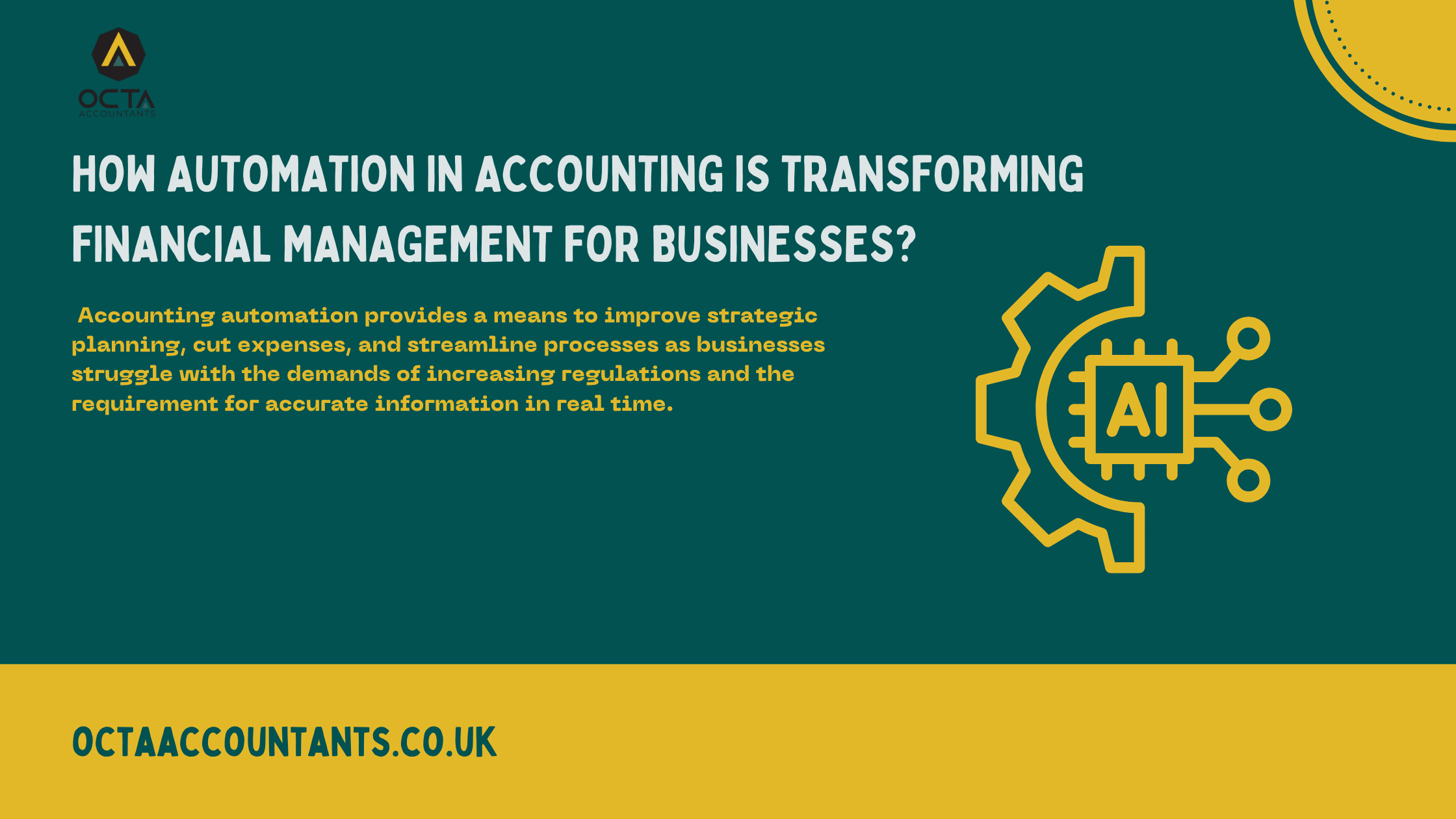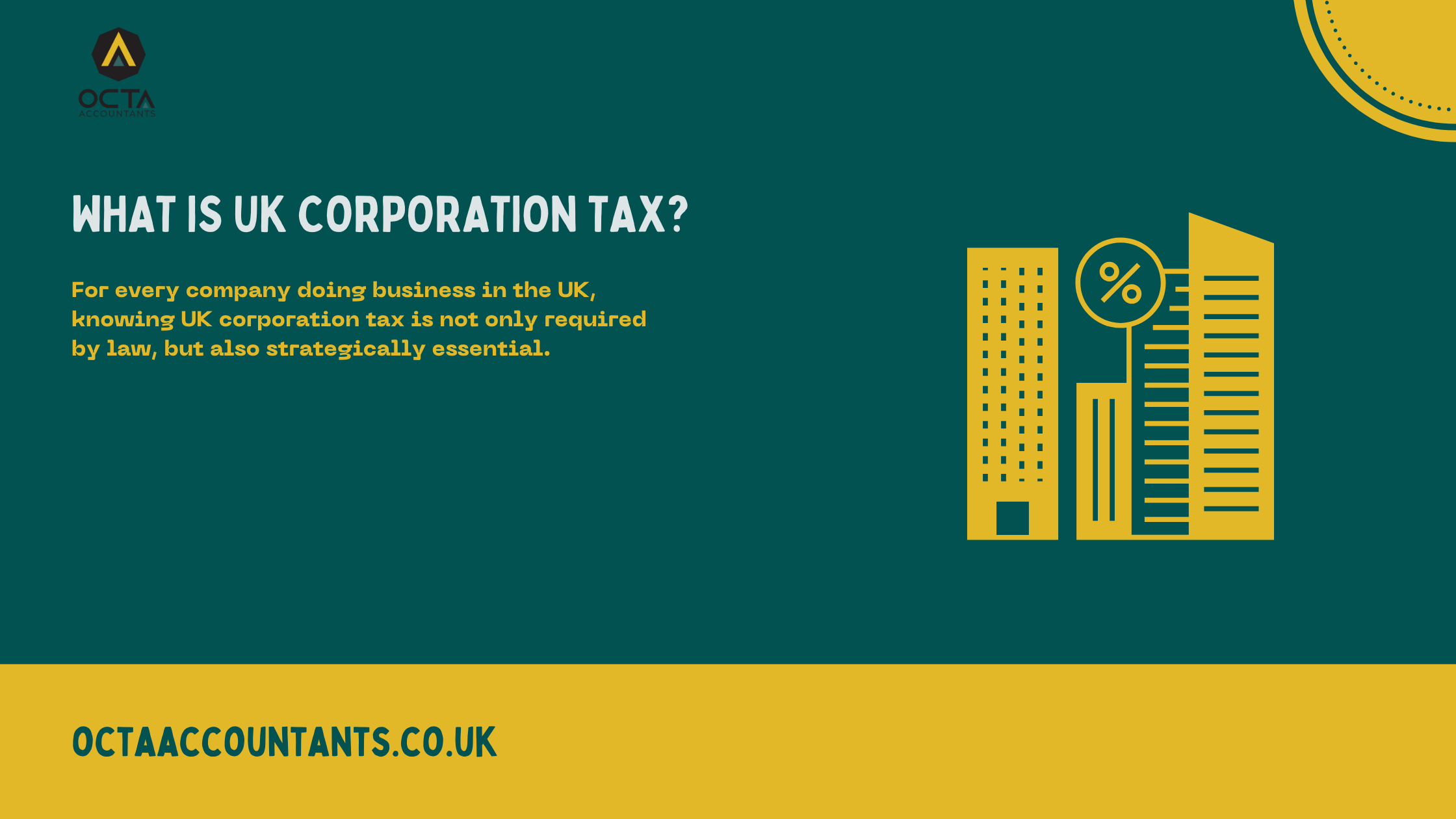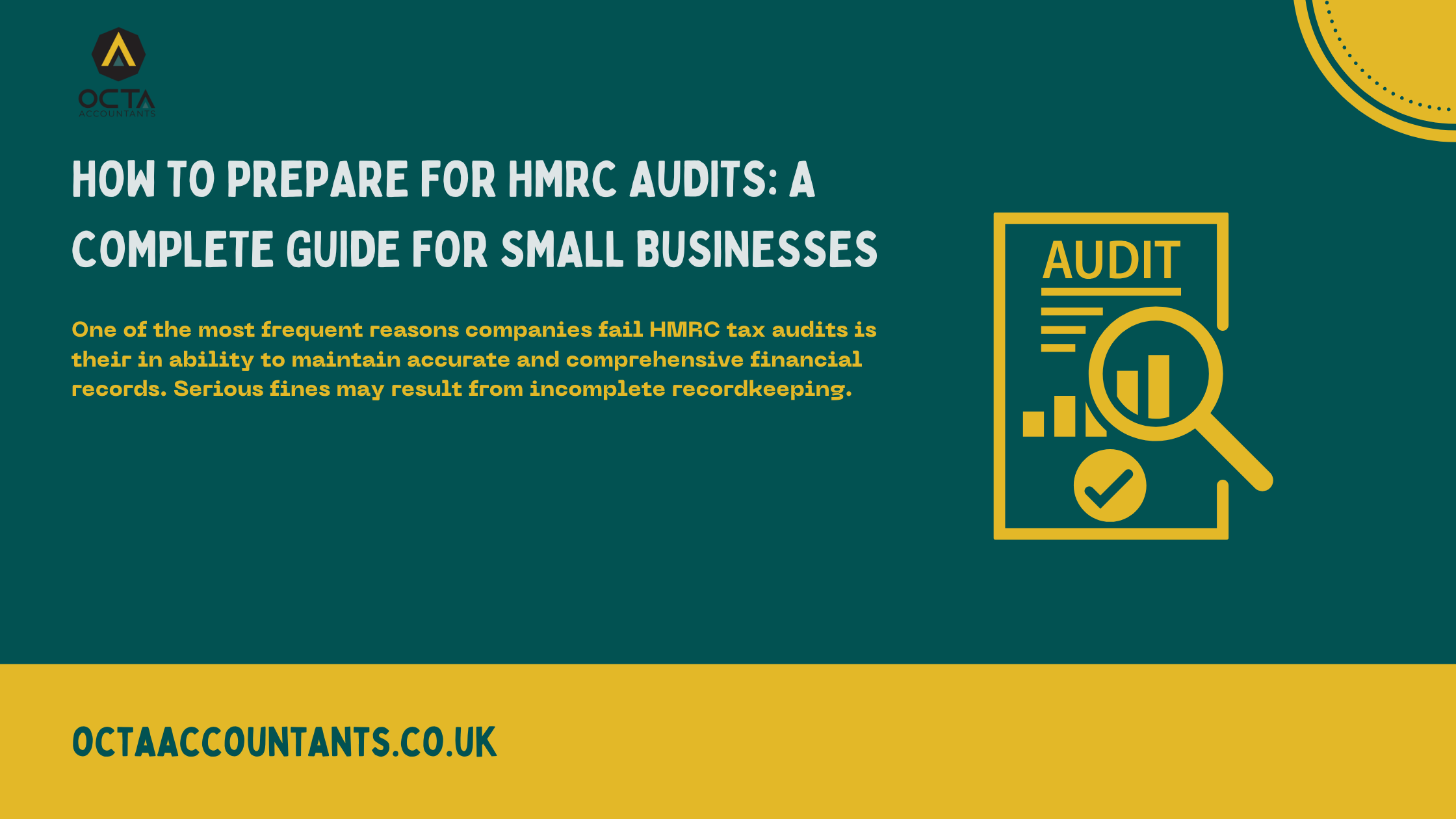Who has to do a self-assessment tax return in the UK?
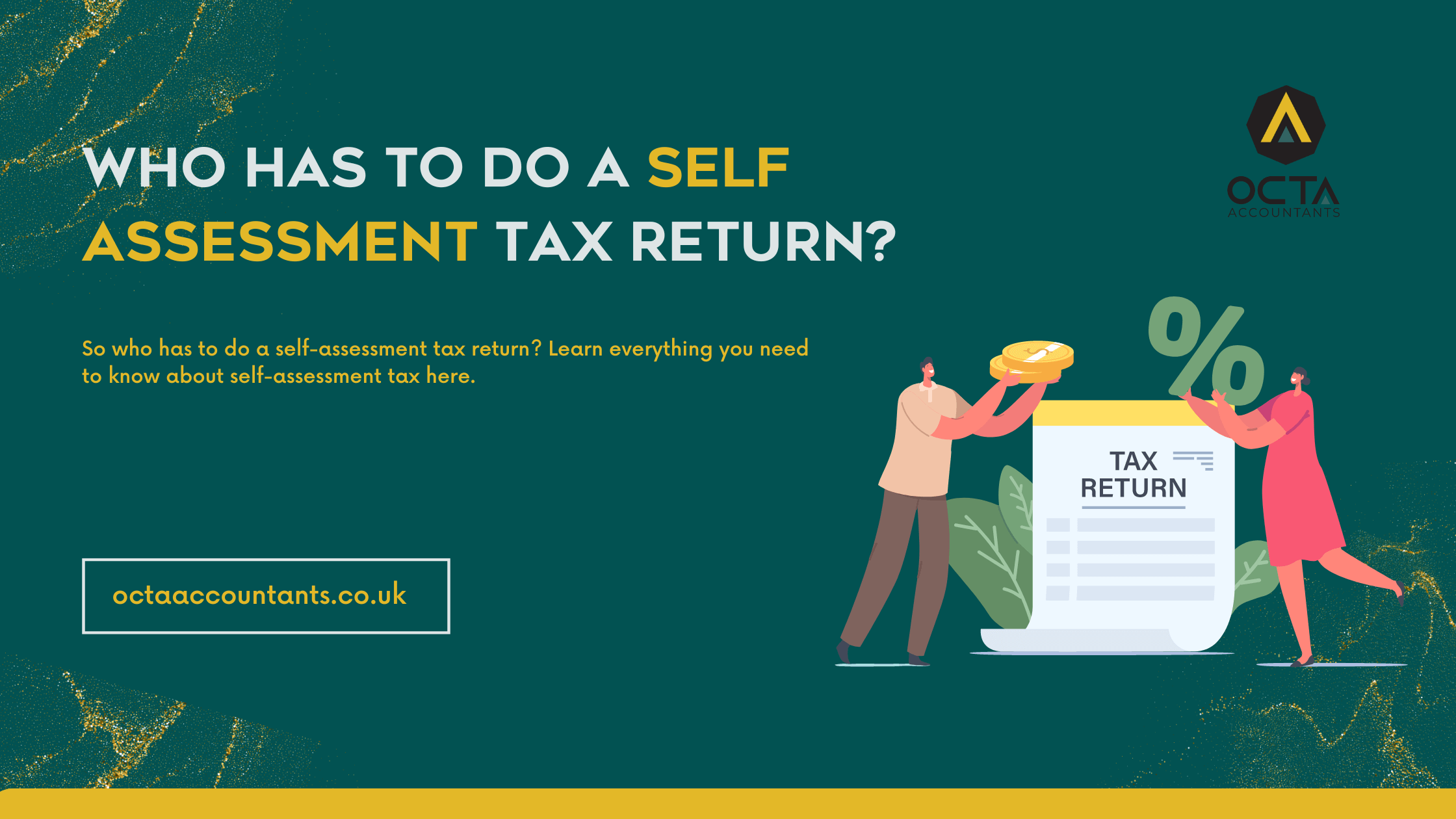

Octa Accountants

8 Min Read

Jan 2, 2023

Self-Assessment
This process calculates an owed or refundable tax amount from your declared earnings. You can find out if you need to pay or reclaim tax once you file your income. So who has to do self-assessment tax return:
- First-time filers
- Self-employed
- Freelancers & contractors
- Construction workers (CIS)
- Landlords
- Investors (property dealers, crypto miners/buyers, forex traders, etc.)
- Expats
- Couriers, drivers, or riders
- People who need tax relief/refund claims
- People with high income (£100K+)

What is a self assessment tax return?
HM Revenue and Customs (HMRC) utilises the self-assessment tax return system to collect income tax. Tax is deducted automatically from your earnings or pension in some situations, which is known as PAYE. If you receive any other type of income, such as self-employment, corporate taxes, or dividends, you must record it to HMRC by submitting a self-assessment tax return. Most UK employees pay all of their taxes through the PAYE system and are not obliged to file a tax return. However, you may be required to file a return if, for example, you have foreign income or your tax affairs are complex.
Who has to do a self assessment tax return?
If you are self-employed, you must always file a Self Assessment tax return (unless your trading income is exempt under the trading allowance). It makes no difference whether you make a profit or lose money from your self-employment, or start trading as self-employed when you’ve registered. If you have revenue or gains from sources other than the UK, you will be required to file a tax return. In the United Kingdom, it is the taxpayer’s responsibility to notify HMRC if they believe they are required to file a tax return.
A person has to send a tax return for last year if they were:
- Self-employed (Sole trader & earned over
£1,000)
- Partner in a business partnership
- Received rent or tips/commissions
- Generated income from investments, savings, and dividends
- Obtained foreign income
Other reasons can be:
- Claim income tax relief
- Claim tax-free childcare or Maternity Allowance
If you want to make voluntary Class 2 National Insurance contributions, you can also file a self assessment tax return. It will improve your eligibility for benefits such as State Pension.
Furthermore, if you have paid tax through the Pay As You Earn (PAYE) system, you do not need to complete a self assessment tax return unless you earned more than £100,000.
Also Read: How to register for VAT in the UK?
How to submit a self assessment tax return in the UK?
If it is your first time filing a tax return, you should first register for self-assessment.
The steps are outlined below.
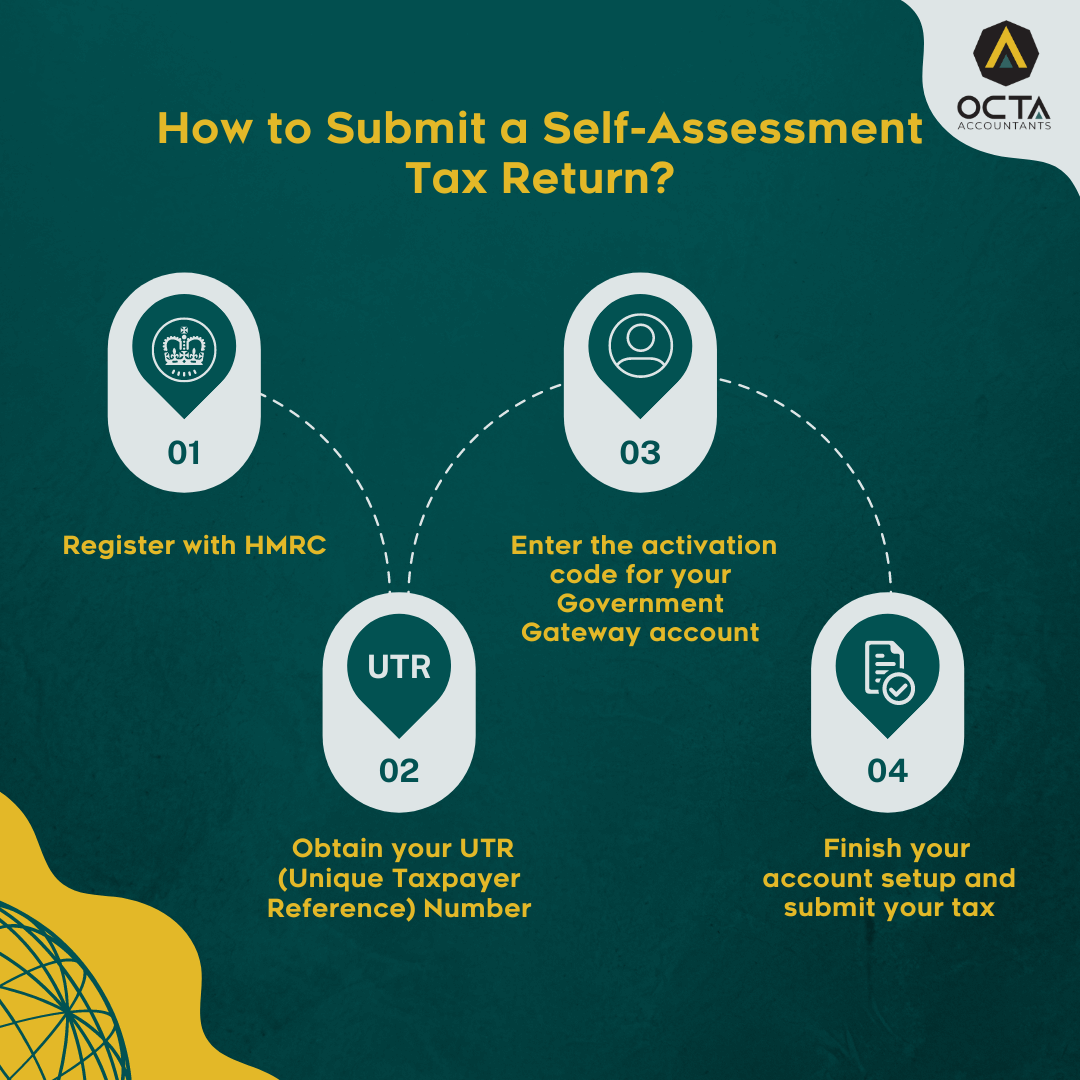

1. Register with HMRC:
The process will vary based on whether you are self-employed, registering a partnership, or not self-employed; you should select the appropriate option. HMRC allows you to register online.
2. Obtain your UTR (Unique Taxpayer Reference) number:
After you register, HMRC will send you a letter with this information. The mail will provide instructions for creating your Government Gateway account.
3. Enter the activation code for your Government Gateway account:
After you’ve done this, you’ll receive a letter in the mail with your activation code. You’ll need this to finish setting up your account and complete it as soon as possible because the code will expire.
4. Finish your account setup:
You can sign in and submit your tax return after your Government Gateway account is fully operational.
HMRC states that the entire process could take up to 20 working days, so don’t put it off until the last minute.
Hire an Accountant for Taxes in the UK!
Hire an accountant in London or in any part of the United Kingdom to manage your taxes. A dedicated personal accountant helps you keep HMRC compliant and submits your taxes on time!
How to fill in a self-assessment tax return?
You will need to complete the sections that pertain to you when submitting your tax return online.
For paper tax returns, you must determine which parts are applicable. Most people will only need to complete the SA100 form. However, some supplemental sections may be relevant to your situation.
Employees, pensioners, and self-employed individuals with a turnover of less than £85,000 may be sent a simplified SA200 return. It’s substantially shorter at four pages. Unfortunately, you cannot choose to fill out this shorter form; instead, HMRC will select and send it to you.
You may need to include the following information on your tax return:
- Income: all taxable and untaxed earnings from self-employment, taxable interest from savings, stock dividends, or capital gains from asset sales.
- Charitable contributions: include the overall amount of Gift Aid contributions.
- Blind User’s Allowance: state whether or not you are claiming this.
- Student loan repayments: describe deductions made by your employer.
- Marriage allowance: If your salary is less than the personal allowance, you can transfer some of it to your spouse.
- Child benefit charge: this only applies to people receiving child benefits who earn more than £50,000 with their spouses.
- Pensions: the total amount of pension payments to which you were entitled, including any lump sum payments
- Advantages: include any incapacity benefit and jobseeker’s allowance you’ve received, as well as the number of taxable perks from bereavement accommodation, carer’s allowance, or occupational death benefit.
Gather all the information you’ll need before filing your tax return.
Ensure you have documentation of:
- National Insurance number
- UTR code.
- Income records such as accounts, invoices, receipts, etc.
- Keep track of any pertinent expenses.
- Contributions to pensions or charitable organisations
- Forms P60 and/or P45.
Extra paperwork, such as tenancy agreements, is required depending on your circumstances.
Also Read: What is the role of a virtual CFO?
Common self-assessment tax return mistakes
Many people try to register for tax returns by themselves and end up making a lot of mistakes. You may think of saving your money, but in reality, you would be wasting your time and effort that you could use on other things.
Here are some common mistakes that people make while filing a tax return:
- Missing deadlines
- Mentioning incorrect figures
- Trying to claim the wrong expenses
- Forgetting to declare salary and benefits from other jobs
- Improper records
- Entering the wrong tax code
File Your Self-Assessment Tax Return On Time!
Octa Accountants take care of your books and accounts – with personalised tax advice. You do not have to worry about managing the taxes and focus on what you do best. Here’s how we help:
- Digital Bookkeeping
- Record Income & Receipts
- File Tax Return To HMRC
- Tax Advice & Consultancy
- Claim Tax Relief
HMRC may take up to 12 weeks to process tax rebates, and it may take further 5 days to 8 weeks to receive your payments.
Octa Accountants understand your requirements first before presenting service charges and have different needs when it comes to tax matters.
Book a meeting with us for Self Assessment Tax Return Service Now!
About Us
Octa Accountants is a one-stop accounting firm that offers a wide range of finance management services.
Our Blogs
How Automation in Accounting is Transforming Financial Management for Businesses?
How Automation in Accounting is Transforming Financial Management for Businesses? Octa Accountants 7 Min Read Apr 14, 2024 Technology Staying ahead of current trends is crucial for development and sustainability in the dynamic business environment. The advent of automation in accounting has been one of the biggest changes in recent years. Automation is changing how […]
What is UK Corporation Tax?
What is UK Corporation Tax? Octa Accountants 7 Min Read Apr 14, 2024 Company Incorporation For businesses hoping to be legally and financially effective, navigating the complexity of the UK tax system is essential. The UK corporation tax is a key part of this system. Understanding the intricacies of UK corporation tax is essential for […]
How to Prepare for HMRC Audits: A Complete Guide for Small Businesses
How to Prepare for HMRC Audits: A Complete Guide for Small Businesses Octa Accountants 7 Min Read Apr 14, 2025 Audit From overseeing daily operations to making sure financial records are accurate, entrepreneurs balance a variety of duties as running a small business has its own unique challenges. Running a business is never easy no […]
